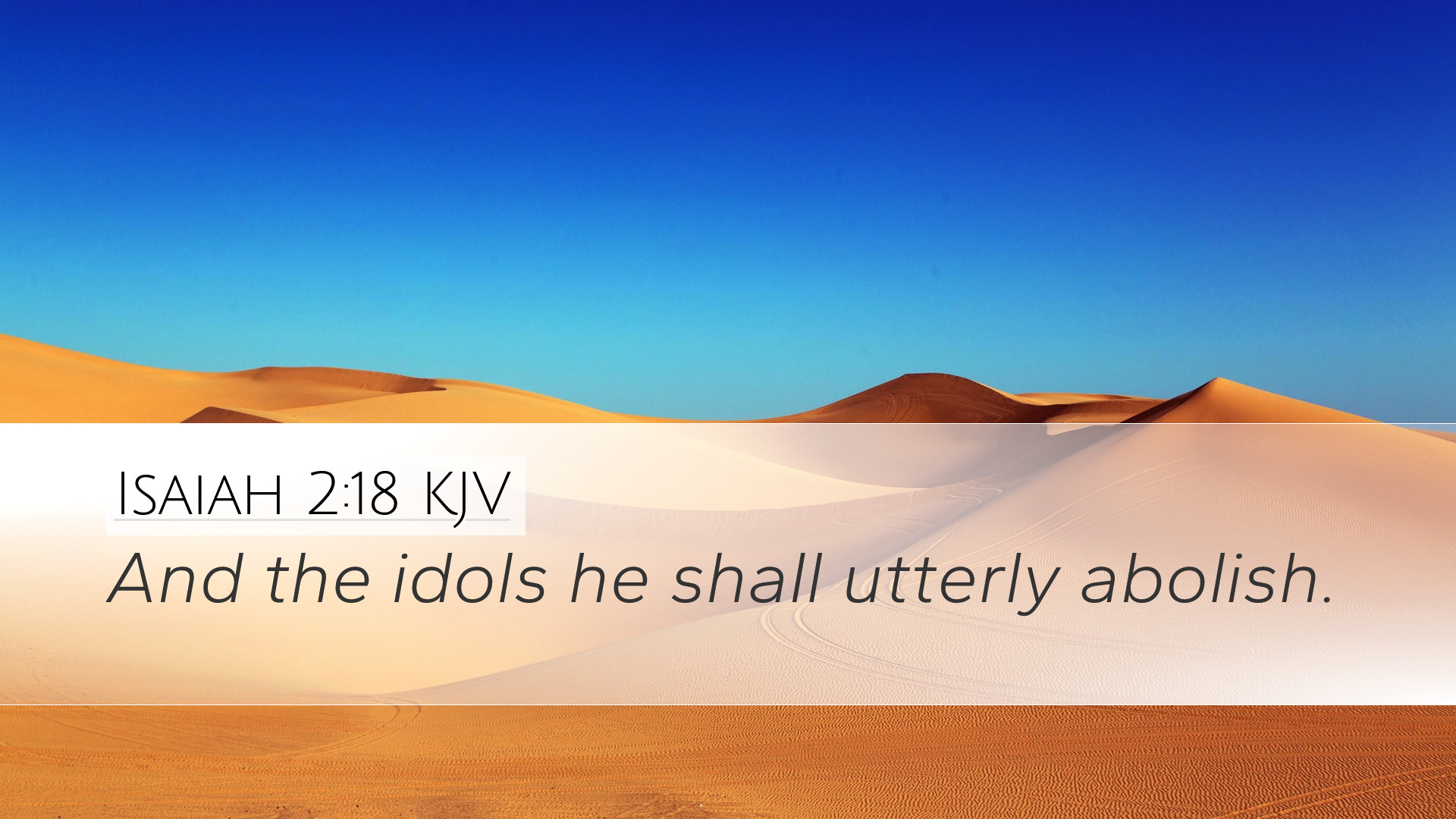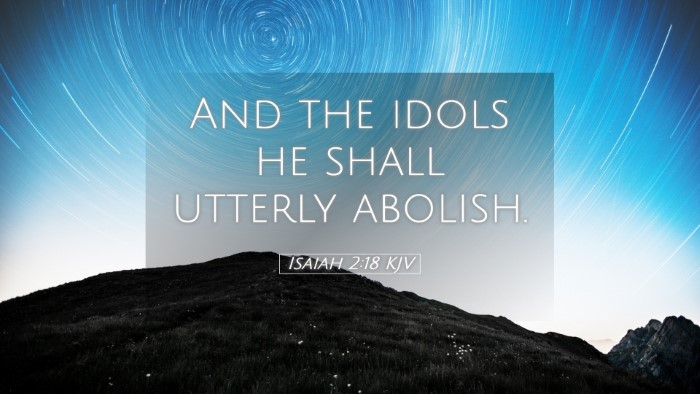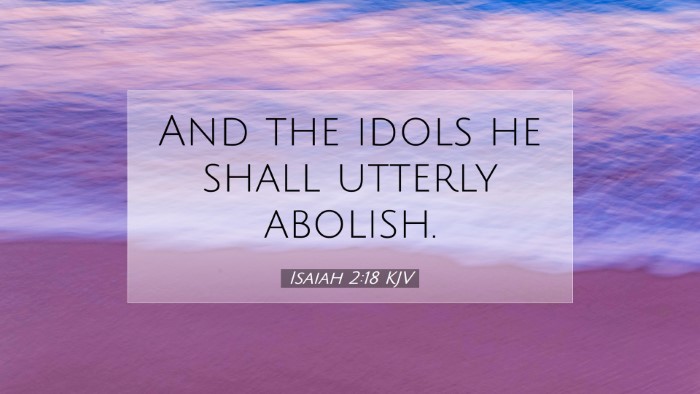Isaiah 2:18 Commentary
Verse: Isaiah 2:18 - "And the idols he shall utterly abolish."
Introduction
This verse is part of a larger prophetic framework in the Book of Isaiah, where the prophet speaks of the coming judgment and the ultimate triumph of God's sovereignty over false gods and idols. The focus of this commentary will draw insights from various public domain sources, providing a comprehensive understanding of Isaiah 2:18.
Contextual Background
The book of Isaiah is known for its rich themes of judgment, hope, and the coming Messiah. Chapter 2 particularly addresses the future exaltation of Zion and reflects on the spiritual state of Israel and the nations. The idols mentioned in this chapter symbolize the false worship that detracts from true devotion to God.
Matthew Henry notes the prominence of idolatry in the ancient Near East and underscores that the prophetic message is a direct challenge to these practices, reflecting God's displeasure with the worship of false gods.
Literary Structure and Themes
Isaiah’s prophetic vision in this chapter encompasses a contrast between God’s mountain (Mount Zion) and the idols of the nations. The structure of this chapter uses a prophetic tone, intended to instill hope in righteous believers while condemning the idolatrous practices of the surrounding nations.
- Idolatry: The term "idols" refers to physical representations of deities that distracted the people from true worship. Albert Barnes emphasizes that the utter destruction of idols signifies a purification process for God’s people.
- Divine Judgment: The phrase "he shall utterly abolish" carries a sense of finality. Adam Clarke asserts that this refers to the complete and irrevocable destruction of false gods, reinforcing God's sovereignty over all creation.
- Hope of Restoration: In the context of judgment, there is an undercurrent of hope for restoration and future glory for those who remain faithful. This dual theme is crucial for understanding the nature of God's dealing with humanity in prophetic literature.
Theological Significance
The verse holds significant theological implications, underscoring the nature of God as a jealous deity who demands exclusive worship. It serves as a reminder that anything that takes the place of God in the hearts of believers is subject to His judgment and dismantling.
Matthew Henry poignantly observes that all false worship will eventually be eradicated, demonstrating God’s ultimate authority. This assertion invites readers to reflect on contemporary forms of 'idolatry' that might persist in modern life, whether they be material possessions, ideologies, or personal ambitions.
Practical Applications
The message of Isaiah 2:18 resonates through time, suggesting that both ancient and modern believers should examine their hearts for idols that may have crept into their worship. There are several practical applications that arise from this verse:
- Self-Examination: Believers are encouraged to engage in regular self-assessment regarding their allegiances and devotions.
- Corporate Worship: The church must be vigilant in ensuring that its practices glorify God without the influence of contemporary idols.
- Educational Pursuits: Theological educators and pastors should emphasize the dangers of idolatry in their teachings, encouraging students to pursue a genuine relationship with God.
- Cultural Relevance: The church is called to speak prophetically against current societal idolatry, which may take more subtle forms today.
Conclusion
Isaiah 2:18 is a profound declaration of God's intent to abolish idols, which serves as both a warning to idolaters and an encouragement to the faithful. Drawing from the insights of Matthew Henry, Albert Barnes, and Adam Clarke, this analysis informs us not only of the historical context but invites contemporary believers to maintain fidelity to God amidst numerous distractions.
Ultimately, this verse emphasizes the supremacy of God, reinforcing that true worship, free from idolatry, is essential for a vibrant spiritual life.


